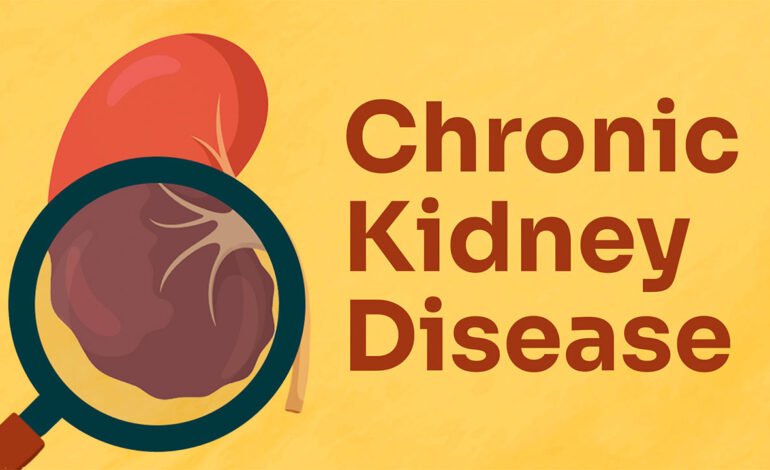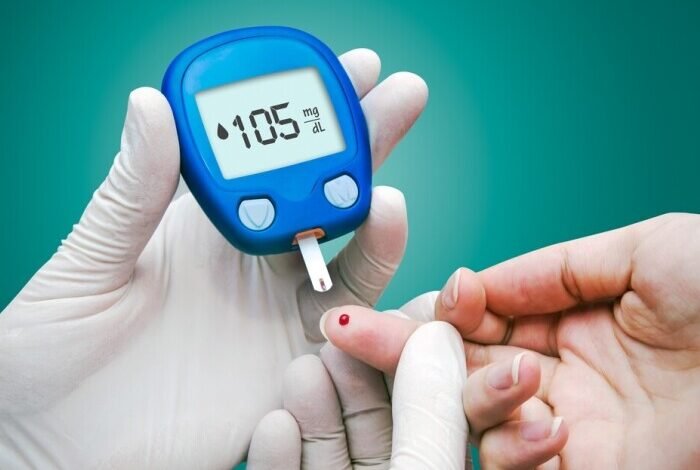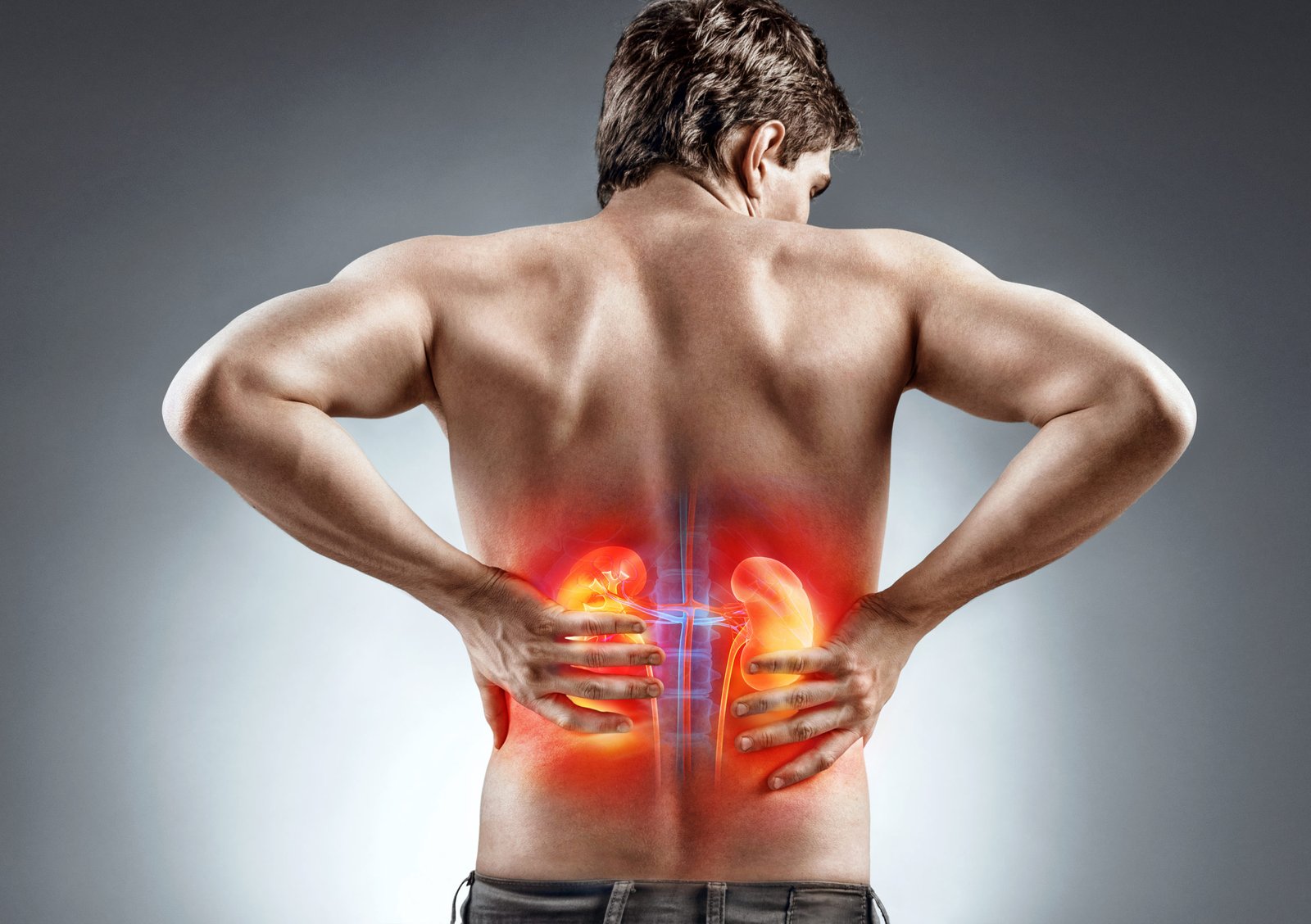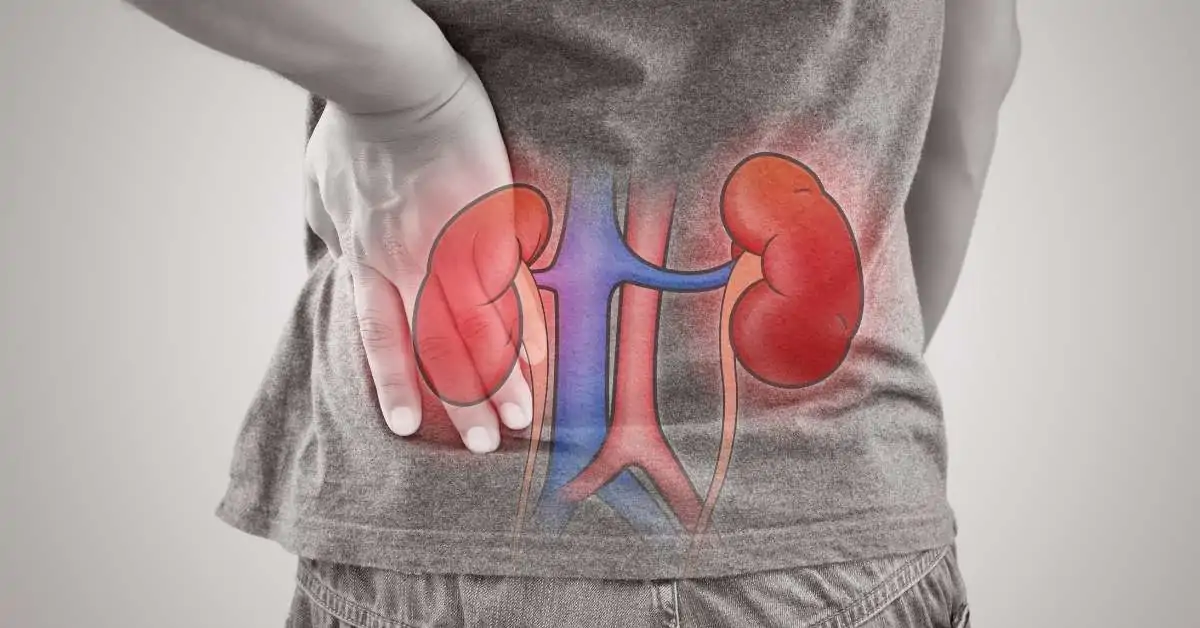
About Chronic Kidney Disease (CKD) including causes & its preventation
Chronic Kidney Disease (CKD) is a condition where the kidneys gradually lose their ability to function over time. The kidneys are responsible for filtering waste products and excess fluids from the blood, regulating blood pressure, and balancing electrolytes in the body. When kidney function declines, waste builds up in the body, and the risk of complications increases. If left untreated, CKD can lead to kidney failure, which requires dialysis or a kidney transplant.
Causes of Chronic Kidney Disease (CKD):
Diabetes: High blood sugar can damage blood vessels in the kidneys, leading to diabetic kidney disease, which is one of the leading causes of CKD.
High blood pressure (Hypertension): Chronic high blood pressure can damage the kidneys’ blood vessels, impairing their ability to filter waste.
Glomerulonephritis: This is an inflammation of the kidney’s filtering units (glomeruli), often caused by infections, autoimmune diseases, or genetic factors.
Polycystic kidney disease: An inherited disorder in which cysts form in the kidneys, leading to kidney damage over time.
Kidney infections or stones: Repeated kidney infections or the formation of kidney stones can cause kidney damage and lead to CKD.
Chronic use of certain medications: Overuse of nonsteroidal anti-inflammatory drugs (NSAIDs), some antibiotics, or medications that can harm the kidneys.
Obesity: Carrying excess weight increases the risk of developing both diabetes and high blood pressure, which can lead to CKD.
Heart disease: Heart conditions can also affect kidney health, as the kidneys rely on proper blood flow from the heart to function properly.
Smoking: Smoking can damage blood vessels, including those in the kidneys, increasing the risk of CKD.
Symptoms of Chronic Kidney Disease (CKD):
In the early stages, CKD may have few or no symptoms. As the disease progresses, symptoms can include:
Fatigue
Swelling in the feet and ankles (edema)
Decreased appetite
Nausea or vomiting
Shortness of breath
Itchy skin
Changes in urination (more or less frequent, foamy urine)
High blood pressure that is difficult to control
Prevention of Chronic Kidney Disease (CKD) by Daily Life:
Control Blood Sugar Levels (for Diabetes):
Diet: Eat a balanced diet with a focus on low-glycemic foods (foods that do not spike blood sugar). Limit refined sugars and processed carbs.
Exercise: Engage in regular physical activity to help manage weight and blood sugar.
Medications: Take prescribed medications for diabetes as directed and monitor blood glucose levels regularly.
Manage Blood Pressure (for Hypertension):
Reduce sodium intake: Lower your salt consumption to reduce blood pressure. Aim for less than 2,300 mg of sodium per day (or as recommended by your healthcare provider).
Eat heart-healthy foods: Include potassium-rich foods like bananas, potatoes, and leafy greens, which can help balance sodium levels and reduce blood pressure.
Exercise regularly: Engage in moderate exercise, such as brisk walking or swimming, for at least 30 minutes a day, five times a week.
Avoid excessive alcohol: Limit alcohol intake to one drink a day for women and two for men.
Quit smoking: Smoking can raise blood pressure and reduce kidney function over time.
Maintain a Healthy Weight:
Balanced diet: Focus on a diet that includes fruits, vegetables, whole grains, lean proteins, and healthy fats.
Exercise: Regular physical activity helps with weight control and reduces the risk of conditions like diabetes and hypertension.
Stay Hydrated:
Drink plenty of water to help your kidneys filter waste more effectively. Avoid excessive consumption of sugary drinks or caffeinated beverages that can strain the kidneys.
Limit the Use of Painkillers (NSAIDs):
Nonsteroidal anti-inflammatory drugs (NSAIDs) like ibuprofen and aspirin can harm the kidneys if used too often. Use these medications sparingly and only when absolutely necessary.
Consult with a doctor before using over-the-counter medications for pain, especially if you have any existing kidney issues.
Avoid Smoking:
Smoking harms blood vessels, including those in the kidneys. Quitting smoking can reduce the risk of developing kidney disease and other health problems.
Monitor Kidney Health Regularly:
If you are at risk (due to diabetes, high blood pressure, or a family history of kidney disease), get regular check-ups that include blood tests to measure kidney function (e.g., serum creatinine, GFR, urine albumin).
Regularly monitor blood pressure and manage any underlying conditions.
Eat a Kidney-Friendly Diet:
Limit phosphorus and potassium intake if you have early signs of kidney disease. This includes foods like processed meats, nuts, dairy, and bananas.
Reduce protein intake: Excessive protein can put additional strain on the kidneys. Work with a dietitian to find the right amount of protein for your specific needs.
Stay Active:
Physical activity improves overall circulation and helps manage conditions that can lead to CKD, such as obesity, high blood pressure, and diabetes.
Try to incorporate at least 150 minutes of moderate-intensity exercise per week.
Conclusion:
Chronic Kidney Disease (CKD) is a progressive condition that can be managed and even prevented by maintaining a healthy lifestyle. The key to prevention involves managing underlying conditions like diabetes and high blood pressure, staying active, eating a balanced diet, and avoiding habits that can strain kidney function (such as smoking or overuse of painkillers). Regular check-ups and monitoring kidney health are essential, especially for those at higher risk. Early detection and intervention can significantly slow the progression of CKD and improve quality of life.






